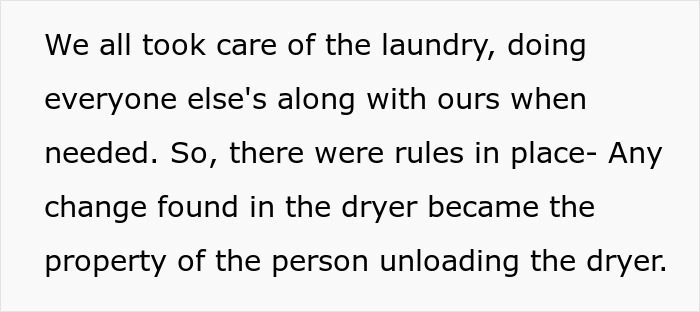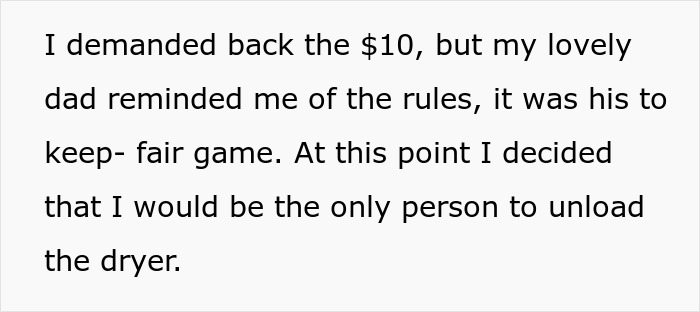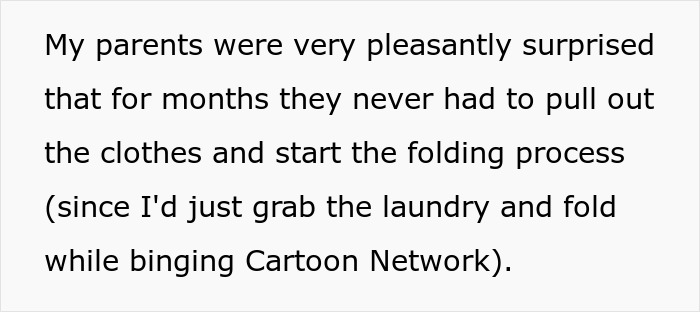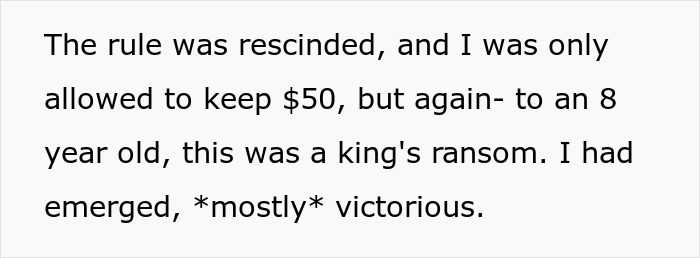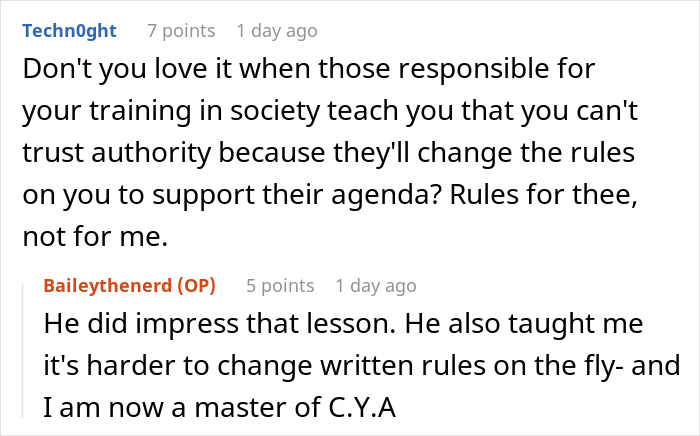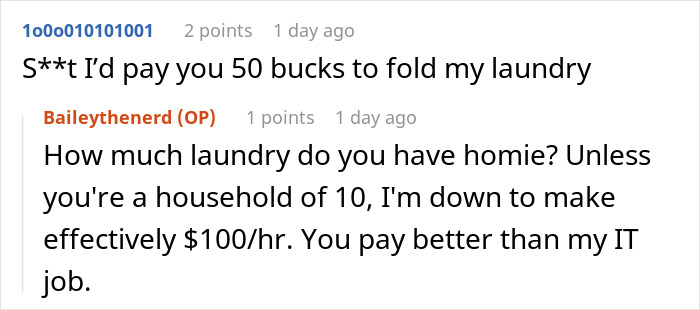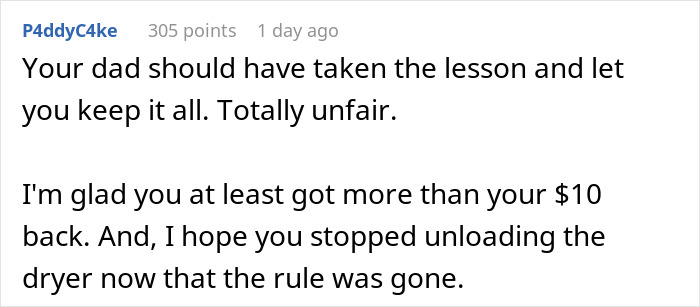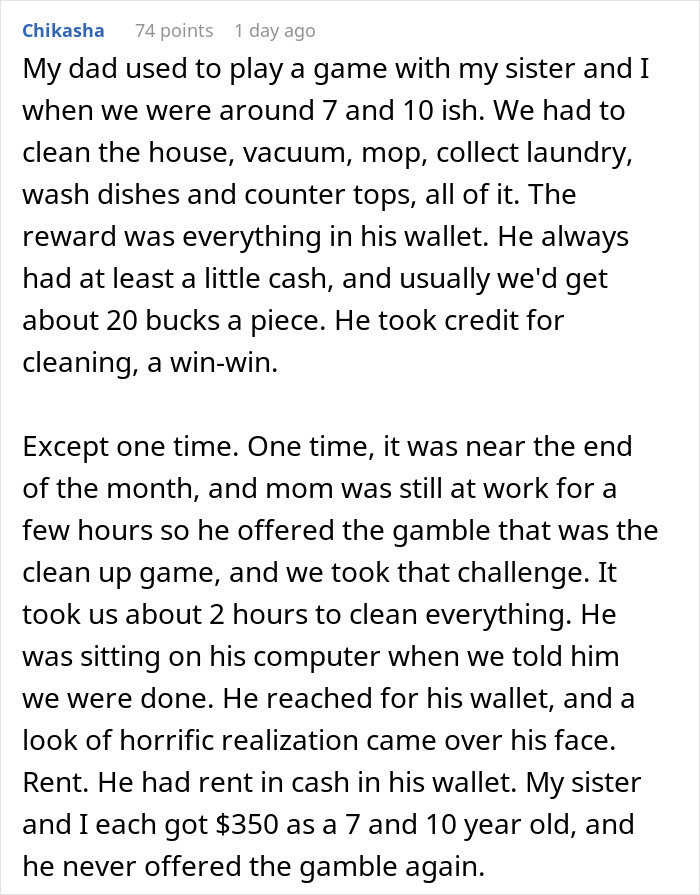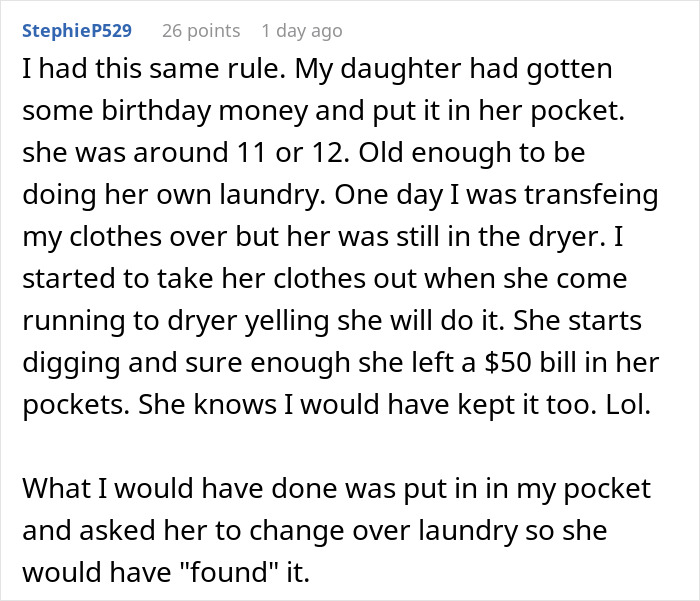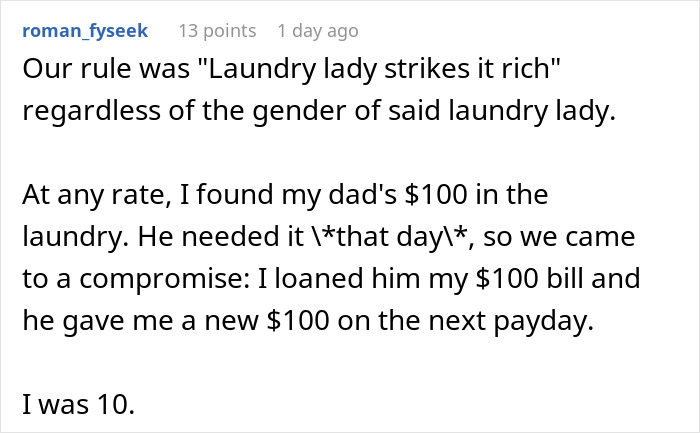In some cases, parents motivate their kids with money. However, this can become comically expensive! Case in point, redditor u/Baileythenerd recently amused the r/MaliciousCompliance online community with a tale from their childhood about how their help doing the laundry netted them a jaw-dropping $200. Scroll down for the brilliant story, as well as the other redditors’ reactions. Bored Panda reached out to the author of the viral post, redditor u/Baileythenerd, and they were kind enough to share their thoughts with us on the advantages of parents teaching their kids to do chores from early on. You’ll find their insights below.
It’s a wonderful idea to teach your kids to help out with the housework from an early age because it teaches them valuable life skills
Share icon Image credits: ADDICTIVE_STOCK / Envato Elements (not the actual photo)
One internet user shared how their parents motivated them to help with the laundry by promising them all the money found in the dryer
Share icon
Share icon Image credits: LightFieldStudios / Envato Elements (not the actual photo)
Share icon Image credits: annann_9 / Envato Elements (not the actual photo)
Image credits: Baileythenerd
According to the author, helping out at home from an early age builds a mindset focused on growth and self-sufficiency
Bored Panda got in touch with the author of the story, and we were curious to get their take on whether or not children who never learn to help out with the chores end up at a disadvantage when they eventually grow up. According to redditor u/Baileythenerd, in these scenarios, the kids would have a harder time in the future. “It is to the benefit of both the child and the parent to involve them with daily chores and tasks,” the OP shared their thoughts with us. “The value of this goes beyond the individual skills the child learns, it also impresses three very important mindsets/ideas in individuals,” they said. First of all, redditor u/Baileythenerd stressed that teaching kids to tackle chores from early on impresses on them that “no daily task is beneath anyone to do.” Next, they pointed out that parents teach their children that necessary skills can and must be learned. “As children, it’s easy to assume the adults around you were just born knowing how to do the tasks they do every day,” the author told Bored Panda. Lastly, this approach also supports self-sufficiency and independence. “Eventually, going out on your own is terrifying,” u/Baileythenerd said. “Even more so when you realize that you don’t know how to do many of the things that need to happen in any household.”
Share icon
Image credits: cottonbro studio / Pexels (not the actual photo)
Learning how to do various chores early on prepares kids for the reality of adulthood
Many of us probably wish that we developed more healthy habits and learned practical skills from an earlier age. For some of us, that might mean consistent exercise and eating a nutritious diet. For others, it’s learning to cook and clean at home. Though it’s never too late to learn something new or to change your life, it takes a while for the habit to become automatic. Though all of our brains are capable of change due to neuroplasticity, it’s easier to learn new behaviors when we’re small and have someone guiding and motivating us. The reality is that it can take a vastly different amount of time to form a habit, depending on the type and complexity of the activity. As Verywell Mind points out, it can take anywhere from 18 to a whopping 254 days to form a new habit. The average, however, is around 66 days for a behavior to become automatic. Let’s be real, though, developing some habits can be a huge pain. Especially if we find them deeply unpleasant. Some people hate vacuuming. Others think doing the dishes is worse than all the other housework put together. If we don’t have strong internal motivators (e.g. keeping a clean home or taking pride in helping your loved ones) pushing us, we need to rely on external ones. Naturally, it gets easier to get ourselves to do the chores we have to do if someone were to pay us or reward us in some other way, like by praising us. However, money should not be the only reason why we do these things.
Share icon
Image credits: Karolina Grabowska / Pexels (not the actual photo)
How children ought to be rewarded for helping with the housework might vary from family to family
So, it becomes vital that parents talk to their kids about why their help is so important. It’s essential that they grasp that they’re helping out for reasons that go beyond the financial. There’s a lesson to be learned here about being independent, pulling one’s own weight, fulfilling promises, and doing tasks from start to finish. As reported by The Washington Post, some experts believe that chores should not be connected to kids’ allowances at all. However, the ‘Preferred Medical Group’ points out that cash rewards are fine, so long as they’re reasonable and age-appropriate. The more difficult the task, the higher the reward. However, mundane tasks should not be overvalued. The rewards that work best are going to vary from family to family and child to child. Some kids prefer getting compliments for all their hard work. Others enjoy the freedom to do what they want after they get their chores done. Still, others prefer getting a tangible reward, whether it’s cash or a small gift. Meanwhile, ‘Bright Horizons’ suggests that parents try to involve the entire family in the chores to show the kids that everyone’s actively participating. It also helps when everyone tries to make the housework fun in some way and not just a dreary activity that they’re forced to do. In our personal experience, dividing up the chores according to personal preferences is a good way to tackle the question of who does what. We don’t mind doing some chores. Some of them are even soothing and meditative. So when we focus on those instead of the ones that we loathe, it’s less of a drag. However, if there are chores that everyone in the household hates with a fiery passion, it might be best to set up a timetable and divide it up equally. Unless… there’s a large reward involved? We’d love to hear your thoughts on all of this, dear Pandas. How young were you when you first started helping out with the housework? Which chores did you try to avoid the most? Did your parents ever pay you to help out at home? Tell us all about it in the comment section at the bottom of this article.
The author of the viral story clarified a few things in the comments
Here’s what some other internet users had to say after reading the post. Some even shared their similar experiences
Share icon
Anyone can write on Bored Panda. Start writing! Follow Bored Panda on Google News! Follow us on Flipboard.com/@boredpanda!


